#jewitchery
Text
wait til the cottagecore girlies find out that Judaism has a holiday celebrating love where we dress up in white dresses and go dance in the vineyards and fields under the full moon
#jumblr#jewish#jewitchery#jewitches#jewitch#tu b'av#jewish holidays#a joking post is not an invitation for appropriation!#judaism#tubav
926 notes
·
View notes
Text
Jewish Angel Work
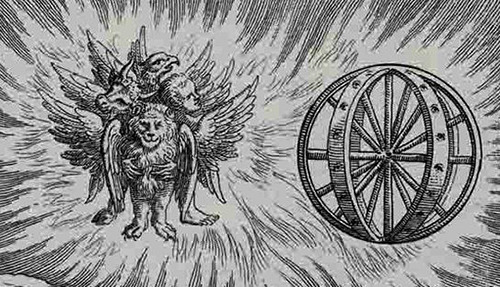
I don't see a bunch of writing about angel work in general, and what I do find is often heavily Christianized! I wanted to talk about what angel work can look like from a Jewish perspective.
(Gentiles may interact and enjoy, but understand that this is for educational purposes and not an invitation to appropriate! 🤍)
A Jewish-Specific Perspective
Judaism views angels in ways other traditions may not share! Some examples:
Angels aren't former humans. They are their own distinct beings just like demons, cows, land spirits and butterflies. People who pass away, even children, are not considered "angels returning home." These angels have specific forms and looks depending on the type, some more humanoid than others.
Angels don't have free will. This does not mean they are held hostage or can't have their own personalities, but their will is an extension of HaShem's Will, serving a specific role in making that Will manifest. Kind of like employees in a corporation doing their tasks!
They don't have names. Or at least, they don't have names we're supposed to know or ask for. They may be incomprehensible to humans, or maintaining a level of anonymity as to not distract from HaShem. Either way, asking for a name is often discouraged in traditional texts.
They AREN'T all here to help you. While it all serves a Divine Will and is therefore Good in the grand scheme of things, many angels serve completely neutral functions from a human perspective. Some could even be considered harmful to humans, the most prominent example being HaSatan. (Even still, HaSatan isn't seen as a true villain. He's just doing his job.)
Some of them are ONLY here to help you! Historical Rabbis were big on the concept of guardian angels. The Talmud says "Every blade of grass has its Angel that bends over it and whispers, 'Grow, grow.'" (Midrash Rabba, Bereshit 10:6.) Every living creature, including you, has a guardian angel to help you along your path. Some translations say the angels hit the grass, and that's not the only story of angels smacking things, so that guidance isn't always gentle, but it's always in the right direction.
Types of Angel Work
Spirit guides. Like mentioned above, guardian angels can help encourage you to "Grow! Grow!" and keep you on a path in line with spiritual health and lovingkindness.
Communing with HaShem. Gd is extremely esoteric. Angels help us send and recieve messages in an easier-to-conceptualize way! Meditation and prayer can also play into this. Beyond every-day applications, angels can also appear unexpectedly with important messages.
Communicating with other spirits. As angels are often messengers, I also think it's helpful to call upon their aid when working with other spirits!
Working with angels of various functions. Modern day Rabbis often marry angelic theology with scientific phenomena, with angels overseeing the process. By that extent, we could ask those angels for help/guidance when relevant!
Protection. Psalm 91, often recited for protection, depicts HaShem commanding angels on your behalf to guard you in all ways. One bedtime prayer names the four archangels to surround us.
Shalom Aleichem is traditionally sung on Friday nights before Shabbat dinner. It invites angels of peace to basically come and hang out with us during shabbat, then to leave in peace once shabbat is over. Many arrangements also make a good lullaby.
Other Notes
Metatron (מֶטָטְרוֹן) is a specifically-Jewish angel who gets appropriated a lot in spiritual circles. He does not appear in the Tanakh, but is mentioned in the Talmud and largely fleshed out in kabbalistic literature! (Islamic literature does mention him by different name, ميططرون, Mitatrun/Mitatrush. Solidarity.)Lots of people recognize Lilith as closed, but the same attention hasn't been given to Metatron. He's a very complex and ambiguous figure worth a whole post of his own so I won't get into it here!
This post is by no means comprehensive! This is just a very "quick" overview of a very rich field of study.
Further Study
On My Right Michael, On My Left Gabriel: Angels in Ancient Jewish Culture-- Mika Ahuvia
A Gathering of Angels: Angels in Jewish Life and Literature-- Morris B. Margolies
Ascending Jacob's Ladder: Jewish Views of Angels, Demons, and Evil Spirits-- Ronald H. Isaacs
2K notes
·
View notes
Text
Hoodoo 101 - Jezebel Root
What is Jezebel root & why is it used in Traditional Hoodoo & Vodou?
Jezebel Root is a feminine root used in traditional Hoodoo & Vodou for dominating a wealthy man, sugar daddy or powerful person and is sometimes used for hexing or cursing. This root was named after a mythical biblical figure Queen Jezebel who belonged the Omri dynasty of the Kingdom Israel in 852 BC. As a controversial figure, she was known to be extremely cunning and ruthless, using her power to gain the upper hand by any means necessary. Historically this plant has been used by ADOS who practiced Hoodoo & Vodou, for a variety of reasons. The Jezebel stereotype was an oppressive image that was used for the sexual assault and servitude of black women during chattel slavery in the US. This root was typically associated with brothels, working girls, vaudeville/showgirls and mistresses who needed to keep their bills paid and food on their tables, by attracting abundance and docility from rich clients to better their lives as a means of survival.
Today this root is still very potent and extremely beneficial for anyone who works in any type of service industry but is typically used by women seeking a luxury lifestyle via wealthy boyfriend or sugar daddy. Typically, these roots are fed or dressed in a variety of ways and placed in mojo bags, candles or other spells to manifest their intention.
Unfortunately, in modern times authentic Jezebel root has been extremely hard to come by and the majority of Jezebel root being sold on the market is actually common garden variety mulch or cherry bark. To the untrained eye it might resemble an actual root, especially when ground up. Here is a common example of fake jezebel root that you’ll typically see being sold in spiritual shops in person or online below.

Real jezebel root should not resemble bark or any type of mulch. Depending on the maturity of the root, the main root will always have multiple smaller roots sprouting from it, unless they have been clipped or shaven off. It should always look like a root! Fake jezebel root is also easy to snap and like most bark, has a dark brown center. Real jezebel root should be somewhat flexible and have a white center, when broken open.

While this is an easy to mistake to make, many trusted shops are STILL selling fake jezebel root to their clientele. I’ve always been passionate about collecting and providing authentic high-quality goods for myself and my patrons at an affordable price. So I’ve been working on a way to provide REAL Jezebel root to the public for the past few years.
I’m pleased to announce my shop will finally be offering in limited quantity plant shares of Jezebel root to purchase during the upcoming spring season of 2023 under our new indoor grow system.

Click HERE to Shop authentic Jezebel Root
Limited to one per person. We also offer Shop Installments via Affirm and accept PayPal & Apple Pay.
#hoodoo community#witches of color#jezebel#jewitchery#the love witch#hoodoo history#hoodoo#vodou#voodoo#pagan community#witches of instagram#love magick#love spells#beauty spells#striptok#black glamour#spoiled gf#luxe life#sugar bowl#sugarbabytips#high maintenance#sugaring#luxury#hypergamy#sw#304#black femininity#black self care#hbfsociety#blackluxury
159 notes
·
View notes
Text

🍎🍎🍎/🌊🌊🌊/🤲🤲🤲
Mood Board for the jewish magic lecture on water and cleansing i am doing for @shtetlshabbos
13 notes
·
View notes
Text

shalom! i'm mel/esther(אסתר), fae/it/doll/they prns pls, and welcome to my folk magic and jewitchery side blog! <3
i follow from my main. my main is @bubblefemmes and this is my carrd and this is my jewitch discord server!
on this blog, i will post primarily about judaism, witchery, and folk magic. my personal practice is largely based in my religious (judaism), regional (appalachian/midwestern/north american) and ethnic (irish, ashkenazi-german) background, so expect my posts to center and focus around this.
i'm offline for shabbat so i will not answer asks + any posts made will be from my queue.

2 notes
·
View notes
Text
Lilith - History in Detail
Shalom, friends!
I am new to Tumblr!
I wanted to share a bit about my current project: I've recently published a piece about Lilith for my Jewitchery group. However, I am looking to write a more detailed academic article regarding her cultural history.
I am absolutely open to collaborating with Jewish folks! Especially fellow Jewitches!
2 notes
·
View notes
Text
Jewitch Self-Analysis: Meaning
It's interesting to me how existentialism often results in depressive attitudes. The epiphany of "nothing I do matters" and "I am so tiny and irrelevant in this fathomless universe" crashes down on the human mind and leaves a person in misery. Why is this the emotional reaction to this concept?
I could probably do an entire research article on this, but for now: My scientific hypothesis is that existentialism damages a person's internal locus of control. If you believe that nothing you do makes a difference, then your self-esteem crashes, followed by the rest of your mental health. Traditionally the concept of locus of control is applied to making a difference in your own life, but I would argue that our definition of what is our "own" life is broader than direct, one-on-one experiences. In this modern world, we have records of ancient people and can see how we are still affected by them, so we can see their life as still continuing. We see fossils and story spinoffs and butterfly effects, and feel our lives stretch beyond what we directly observe.
At the same time, we are conceptualizing just how huge the universe is. Those butterfly effects don't reach the scale of changing the movement of the stars, nor do they change the fact that space is too huge and constantly-expanding for reasonable space travel. Even if there are other sentient beings in the cosmos, it is unlikely they would find our planet before it is one day inevitably obliterated by our sun, ruining any archeological remains they could have found. This is our world, our life, and we will all be forgotten one day.
Feels pretty destructive to the internal locus of control.
The answer to existentialism seems to be to find meaning, someway somehow. This requires a pivot from science to philosophy. My philosophical hypothesis is that meaning is a concept by and for humans. We create the meaning that gives us the internal locus of control we need to keep us going. And that meaning usually looks like connections to the world around us, the spreading of that abstract concept of our "individual life" that caused some of the problem to begin with. I would call this spirituality.
Spirituality. Whatever path you take, each of them is full of those immaterial, abstract concepts that we humans crave. Afterlives, promises, patterns, good and bad fortune, connection and harmony with other beings... The sorts of abstract concepts that, as I argue, humans need to function.
Now, before I get into my own specific self-analysis, I will bring up how spirituality often involves deity/ies. One could argue that the very idea of deities also attacks the internal locus of control, because it presupposes a higher power affecting your life instead of you doing so yourself. The difference is that, as I see it, religions outline methods you can use to affect your life by affecting the higher power. Perhaps you do this through direct communication with your deity, or by performing sacrifices or good deeds. In this way, you are exercising internal control. Certainly, there are those who end up completely externalizing their locus of control to their perceived deity, feeling that no matter what they do their deity doesn't care or will act against them. This can be hazardous to their mental health. But this is not a universal problem, and so deity worship does not inherently damage the internal locus of control.
So for the self-analysis, once again analyzing why Jewitchery is something I'm looking towards.
For me, meaning is often found in acting spiritually. Not exclusively, but on the whole it is very fulfilling when I complete mitzvot, and work towards communing with nature. To visualize the flow of energy, and to practice divination. To blow my shofar, and indirectly kiss the Torah as it passes by. To share these experiences with others, and through them find a community.
I look at these examples, and think that perhaps I don't need both Judaism and magic to feel fulfilled. Certainly, I can gain meaning and community from either alone. And it would not cause great harm for me to let my participation in one lapse.
But that feels like saying there is no reason to eat both honeydew and cantaloupe, because both are sweet melons that can satisfy a craving. Maybe, but they are different and appeal to me in different ways. And if I really want a particular flavor, the other won't really be truly satisfying. It would be more of a "meh, good enough."
I am also a multi-faceted human being who has the privilege of living in a society where I can (generally) pursue all of who I am. I can ignore a part of me if there is need to, but if there is no danger which may prompt that need then why should I? And, besides, it is generally considered good practice to not put all your eggs in one basket, psychologically-speaking. If I have a crisis of faith in either Judaism or magic, I will have the other to help prop me up as I work through it (and also the skepticism, but that's irrelevant for this point).
Balance is good in all things, especially in what gives you meaning and a locus of control.
2 notes
·
View notes
Text
hii I'm ella!
BASIC INFO
18y | she/her
brazilian latina
polyam lesbian
RANDOM INFO
- I'm looking for my glow up!
- I love coquette but I also love femme fatale lol
- I love all book/film genres except for comedy and romance (sorry lol). I also have an eclectic taste for music.
- my diagnoses are ocd, ana and asd. I'm currently looking for bpd and adhd diagnosis, to see if I have it. also, I'm in remission for social phobia and delusional disorder. I also am chronically ill and hoh.
- I was raised in christianity, dabbled into wicca, buddhism, na'vi path and laveyan satanism before focusing only on polytheism and witchcraft. I'm on a LHP/grey witchery/jewitchery/chaos magick path nowadays.
- I am part of a kabbalah-based order and sometimes go to terreiros and wiccan festivals in my city.
- I'm under patronage of queen persephone. I also work with the dragons and lord lucifer. I worship djehuty, artemis and my umbanda guides.
- I'm majoring in filmmaking and animation. I also like to learn about psychology, philosophy, and physics.
- I like to learn languages, I currently speak portuguese, english and spanish. I'm learning german and japanese. I know a bit of hebrew and would like to study sign language and french someday<3
- I'm a filmmaker, trad/digital artist, animator, photographer, actress and video editor.
- I'm a writer, I'm excited to publish my first book!
- I'm a martial artist and dancer.
- I'd like to learn how to sing.
- I would also like to be a programmer, DJ and a photography model one day.
TW FOR:
- trauma talk, trauma k***, addiction, weight talk etc...
MASTERLIST OF POSTS:
MASTERLIST OF MY SERVICES (jobs)
#latina#lgbtq#glow up#coquette#femme fatale#books#mental health#vent blog#actually bpd#actually autistic#spirituality#aesthetic#art#witchcraft#witchblr#lhp#jewitch#chaos magick#persephone#draconic path#demonology#demonolatry#filmmaker#artists on tumblr#acting#psychology#philosophy#langblr#writers on tumblr#tw
2 notes
·
View notes
Text
Jewish Ancestral Healing
Episode 9: The Eastern European Jewish Women’s Tradition of Cemetery Measuring w/ Annie Kohen
This podcast is really fascinating for anyone looking to get into the folk practices of Judaism, and this episode in particular is so full of women’s practices i had never heard of! I need to read a whole book on feldmestn. You can read more at Annie’s website.
This podcast covers more than just ashkenazi ancestral practices, so i really do recommend checking it out!
#jewish witch stuff#jewish ancestral healing#kohenet#judaism#jewish history#feldmestn#jewitchery#jewish folk magic#Spotify#annie kohen#kohenet hebrew priestess institute#feldshers#jewish death practices#wailing women
31 notes
·
View notes
Quote
You are divine light. You may not see it, how it glimmers about you like wings, but the majesty stays. You are cosmic gold, like honey or ambrosia- limitless and immortal. Always growing, rising.
@blisswitch
#spiritual#spirituality#motivation#inspiration#witch#witchcraft#witchblr#witches of tumblr#divine#divination#mythology#poetry#quote#witchy#jewitch#jewitchery#poet
66 notes
·
View notes
Photo
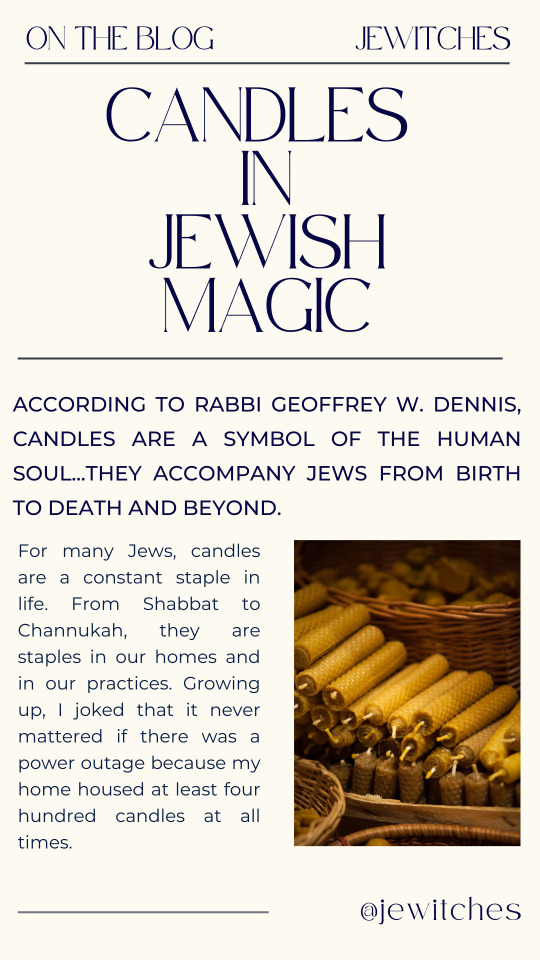
ACCORDING TO RABBI GEOFFREY W. DENNIS,
CANDLES ARE A SYMBOL OF THE HUMAN
SOUL.THEY ACCOMPANY JEWS FROM BIRTH
TO DEATH AND BEYOND.
For many Jews, candles are a constant staple in life. From Shabbat to Channukah, they are staples in our homes and in our practices. Growing up, I joked that it never mattered if there was a power outage because my
home housed at least four hundred candles at all times.
READ MORE
#jewish#jewish magic#candles#judaism#jumblr#jewitches#jewitchry#jewitchery#witchcraft#witchy#Jewitches blog
39 notes
·
View notes
Text
Yads in Jewitchery
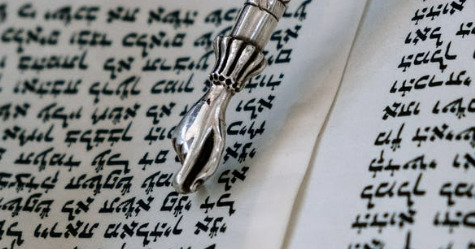
I was recently gifted a handmade yad with a lot of symbolism behind how it was made. (It's hand-carved from a tree which once stood where the Temple now does, and that same tree's wood was used to make a huge banner over the bimah in our sanctuary bearing the Shema. I'm extremely happy to have it.) It got me thinking about how to use in my magical practice, which is often intertwined with my Jewish one.
What is a yad? Pretty much just a pointer used for reading the Torah. It doesn't typically have a lot of religious symbolism behind it, it's much more a practical tool. Torah scrolls have tiny handwriting and it's easy to lose your place while reading. Scrolls are also built to last, so you're not supposed to touch it with your oily fingers. The yad helps.
Wands in witchcraft are pretty common, but they're conceptualized in a lot of different ways. The most common seem to use Wicca as a baseboard, where wands represet either the element of Air or Fire and are primarily used for focusing and directing energy. When gendered, it's typically used to represent masculinity and "the Male principle." (I don't really gender objects like that, but it's historically prominent enough to mention.)
I see my yad a little differently. To start, it has no gender, no inherent element. It is still, first and foremost, a practical tool. That said, I think its connection to the Torah gives it a powerful symbolism in magic use. It's a designated liaison between the person using it and a physical representation of the Divine. It helps us touch what we couldn't on our own. I think that makes it a great tool to sort of poke through "the veil," so to speak, keeping our work focused and accurate in the process. It helps increase that connection and "touch" things more effectively.
I don't think that mindset around wands has to be exclusive to Jewitchery by any means, but I think using a yad specifically makes that symbolic meaning a little more potent, especially if your specific yad has already been used to read from the Torah. Curious to hear other people's thoughts and the way other people use their wands!
-Gᴇɴᴛɪʟᴇs ᴀʀᴇ ᴡᴇʟᴄᴏᴍᴇ ᴛᴏ ʀᴇʙʟᴏɢ ᴀɴᴅ ᴊᴏɪɴ ɪɴ ᴛʜᴇ ᴅɪsᴄᴜssɪᴏɴ!-
998 notes
·
View notes
Text
#hoodoo#tiktok#witches of tiktok#witches of color#aphrodite#the love witch#black femininity#venus#haitianvodou#black glamour#leveling up#hypergamy#beauty spells#glamour magick#glamour witch#glamour spells#love magick#self love spells#angelology#biblically accurate angel#jewitch#jewitchery#afro jewish#conjure#spell work#tumblr fyp#candle magic#witch shop#paganblr#wiccan
13 notes
·
View notes
Text

Jewish Amulet Mood Board
2 notes
·
View notes
Text
Tarot Through a Jewish Lens (Part I)
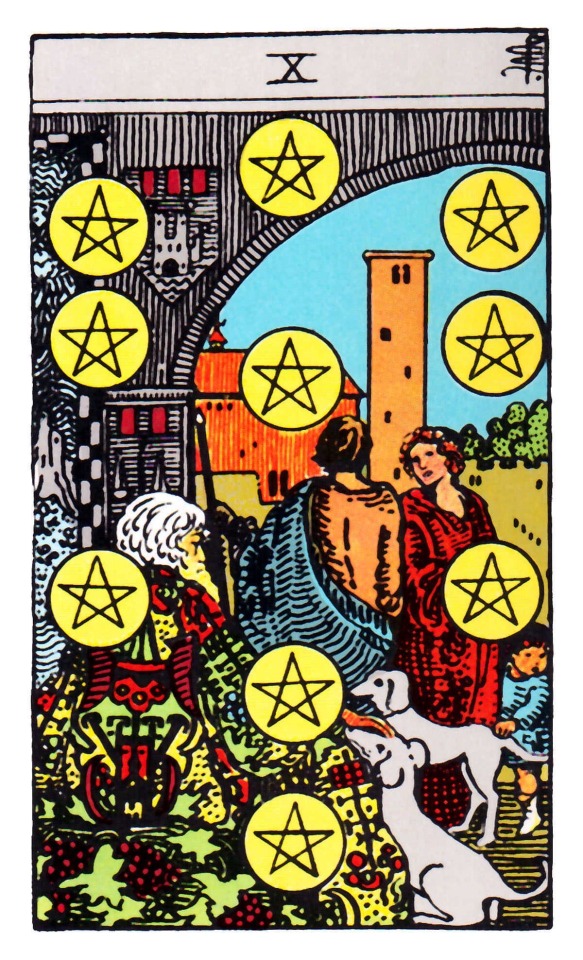
Is Tarot Jewish?
No. Tarot was not a Jewish creation and nor does it come from Kabbalah. When Waite made his famous RWS deck, he was a Christian occultist/magician and part of the Hermetic Order of the Golden Dawn and also formed his own Fellowship of the Rosy Cross. He was a Catholic involved in 'western esotericism' and fell under the learnings of Eliphas Levi. Eliphas Levi was not a Jewish man. He was a French gentile occultist who changed his name from Alphonse Louis Constant to Éliphas Lévi Zahed -- why? He wanted his magical works to sound more authentically exotic (aka, Jewish) because he appropriated from Jewish mysticism and skewed it for his own wants. He believed that Kabbalah was the "linking factor between the Old Testament and the New Testament", and that is rooted in Christian supersessionism, a violent ideology that has resulted in many murders of the Jewish people. Another example is the french occultist, Court de Gébelin, who claimed that the Major Arcana were numbered to correspond to the 22 letters in both the Egyptian and Hebrew alphabets. It didn’t seem to trouble him that at the time different versions of the deck that was in circulation sometimes had more than and sometimes less than 22 Major Arcana cards. Or that ancient Egyptians didn’t use an alphabet.
So no. Tarot was created as a playing card game, sprung up in Italy, Germany, and France. It was not intended for 'occult' use until much later. And still, in no way shape or form, was it ever Jewish in origin. In the Torah, besides certain kinds of divination/tools, divination is forbidden and Tarot is considered avodah zarah (idolatry) because it is a non-Jewish practice.
Now I'm sure you're asking: Well you read tarot, why are you telling me this? Aren't you incriminating yourself?
I'm telling you because I want to stress and push back against cultural appropriation and Christian supersessionism that is rooted in these beliefs, and I want to make it clear that the relationship between a Jew, halacha, and G!d is on them - but to not fool oneself claiming a non-Jewish practice is actually Jewish. That, I think, is more ludicrous than just using tarot.
Alright, now onto the fun parts and what you are here for.
My Jewish Theology with Tarot
So, this is all my personal theology which obviously you do not have to share. I am Jewish and practice religious Judaism. I believe that there is only one G!d, Hashem, and that They are everywhere and in everything. In academic terms, I am a monotheistic panentheist. This aligns with a lot of Jewish mysticism, especially Chassidus, and consider myself a crossover between the Conservative Jewish denomination and Renewal, with a solid base in the American Neo-Hasidic movement . (Conservative =/= political right-wing in the Jewish movements). I deeply respect Jewish traditions, halacha, and have put a lot of thought in what I believe and how it relates to tarot. There will be of course Jews who disagree with me, but I'm not here to dwell on that.
When I read tarot, I am not asking the cards to tell me the answer I am seeking - the cards are a tool, an object, and do not possess spirits of their own. I am asking G!d. Now, angels won't interfere, but sheydim (demons) can. I will talk about protections/rituals one can use to avoid sheydim meddling later.
As for questions like: How does one ethically divine? How much power do interpreters have? Does G!d plan everything? Do we have free will when it comes to our future? Let’s look to source texts.
“All is foreseen, but free will is given.” —Rabbi Akiva, Pirke Avot 3:15
"Rabbi Bena’a: There were twenty-four interpreters of dreams in Jerusalem. One time, I dreamed a dream and went to each of them to interpret it. What one interpreted for me the other did not interpret for me, and, nevertheless, all of the interpretations were realized in me, to fulfill that which is stated: All dreams follow the mouth of the interpreter." —Berakhot 55b
"The Gemara asks: But doesn’t Rav say that any divination that is not like the divination of Eliezer, the servant of Abraham, when he went to seek a bride for Isaac (see Genesis 24:14), or like the divination of Jonathan, son of Saul, who sought an omen as to whether he and his arms bearer would defeat the Philistines (see I Samuel 14:8–12), is not divination? Since Rav did not rely on the omen in his decision making, he did not violate the prohibition against divination, and there was no reason for him to penalize himself." —Chullin 95b
"What is a diviner? One who takes his stick in hand and says, (as though he were consulting it), “Shall I go, or shall I not go?” So does it state, (Hoshea 4:12) “My people ask counsel of their stick, and their staff declareth unto them” (Sifrei Devarim 171:6). (3) מעונן — Rabbi Akiba said, Such are people who assign times (עונות plural of עונה “period”, “time”) — who say, “This time is auspicious to begin some work”; the Sages, however, say, It refers to those “who hold your eyes under control” (who delude by optical deception; they connect מעונן with עין “eye”) (Sifrei Devarim 171:9)." —Rashi on Devarim 18:10-12
"... here he does not rely on the אות which he had stipulated, but where he asked G’d in prayer for help, saying that if certain things were to happen he would regard this as a sign that his prayer had been answered favorably (compare Ibn Ezra there). When the Talmud Chulin 95 כל נחש שאינו כאליעזר עבד אברהם ויהונתן בן שאול אינו נחש, the meaning is that “any divination which is not like that of Eliezer or that of Yonatan ben Sha-ul is not a divination,” i.e. is not permissible, but is akin to relying on witchcraft [Unless the person requesting a sign does so as a prayer directed to G’d it is forbidden. Ed.]" —Sforno on Beresheit 24:14
“The true power of the tarot lies in its ability to channel a clear path for our deep intuition to shine through. Consulting the tarot can help clear creativity blockages, clarify ambitions, work through complex decisions, and make sense of emotions and relationships.” —Holistic Tarot, Benebell Wen
In my interpretation of these quotes, I gather a few things:
1. In Jewish thought, dreams are 1/60th prophecy. However, dreams follow the mouth, i.e. interpretations. Multiple interpretations can be true. Being a confident and learned interpreter is important. While I did not quote it, the sages also advise the one should pay your interpreters fairly.
2. Hashem has given humans free will, so we can make our own choices. That is unique to us as beings, unlike angels. G!d already knows the possible outcomes.
3. It is not divination to notice and realize patterns or answers as long as you do not use it as an omen to change immediate course - examples the sages mention in specific are "a piece of bread falls from your mouth, so you decide not to walk to the lake", i.e, seeking 'signs' and omens randomly to direct your life.
4. Rashi's explanation of what a diviner and sorcerer are, compiled from different Jewish texts. Now, I am not here to say "and this is proof Judaism and halacha are actually fine with divination!" Nope, in Bamidbar 23:23, it is very clear that Jews are told to get what they need from prophets or G!d themself, and do not need augury. What I am arguing here is that by these specifications, and connecting to my final point of what tarot actually is, tarot may not fall under that category depending on how you use it.
5. I wanted to highlight Sforno's commentary here because the way I read tarot is via prayer. Tarot is a tool, and when I begin a reading, I am not asking the cards, I am asking Hashem to use these cards as a sign and communication.
6. Finally, I quoted Benebell Wen because of her poignant understanding of how tarot is less about "fortune-telling" and more about a creative psycho-spiritual exercise for intuition and is more like a mirror to our subconscious telling us what is true. Fusing this with the ideas above, this is my short rundown of how I see and view Tarot: Tarot is a prayerful, spiritual tool as a way I can interpret and communicate from G!d, and I understand the cards themselves are not going to tell the future. Tarot is a mirror for the subconscious and a way for us to work through things we do not feel we can do on our own, be'ezrat Hashem (with the help of G!d).
Jewish Tarot Spreads
As I don't want to just post photos, I am instead going to include links to the tarot spreads I have found, to their origins so you can know the creator!The Archangel Spread
The Divine Threads Spread
Wisdom of the Hebrew Priestess Spread
Vessel, Offering, Ally Spread
Do Not Play It Small Spread
Rooting and Releasing Spread
Jewish Tarot and Oracle Decks
Eht/Aht Netivot Oracle Deck
Tu B’shevat Oracle Deck
Moon Angels Oracle Deck
Malakhim Meditative Cards
Raziel Tarot Deck (Out of Print)
Jewish Tarot (Never Printed, Can See All Cards Virtually)
72 Names Deck
Tokens of Light Deck
King Solomon Deck
Revealed by the Letters Deck
Cleansing and Protection
So, of course, this is so dependent on what you think is most important for you, as it is your practice. However, I will share what I do.
When it comes to doing readings, I have a very specific ritual. First, I light incense or a candle depending on what I feel like doing at the time. This is something I am still working on and trying what fits best for me and my cards. I will use incense smoke to cleanse cards or the "knocking" card trick. Then, I say two prayers - I recite the blessing:
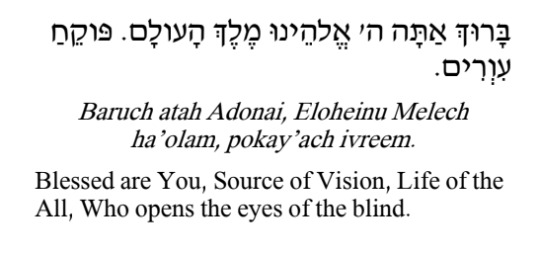
"Blessed are you G!d, Ruler of the Universe, who opens the eyes of the blind.
The reason is because of the allegory that intuition and divination are connecting to a special type of sight. Then, in the case of the concern with sheydim messing with the reading, I have decided to use the protective angel prayer:

"In the name of the Lord, G!d of Israel:
May the angel Michael be at my right side,
and at my left side, Gabriel,
before me Uriel, behind me Raphael,
and above my head, Shekhinat El, G!d's presence."
This is traditionally recited at night, but I felt it was just as appropriate to call on these angels for protection. Plus, Uriel is associated with illumination and is a useful presence to have during these readings. In Jewish gemology, lapis lazuli is good for bringing understanding and grounding intuition, so I use that gemstone as well while I read. Eventually, I'd like to also get an onyx as it is associated with enlightenment and wisdom in Jewish gemology. I also use a tarot cloth with a hamsa and have a protective amulet pendant.
Finally, when I shuffle my cards, I sing a very specific phrase - the "ein od milvado" from Kohelet 1:2, in a tune that puts me into a meditative headspace - and I shuffle with my eyes closed, only stopping when I feel it is right to do so. I also use a kabbalistic meditation technique to allow the divine flow (shefa) from G!d's light flow through the crown of my head.
If you liked this work and information, consider tipping me at: https://ko-fi.com/ezrasaville!
Sources (I will post this in every post of this series):
Sefaria
Chabad
Tarot and the Gates of Light by Mark Horn
Torah, Tarot, and Tantra by William Blank
The Jewish Dream Book by Vanessa Ochs
Magic of the Ordinary by R. Gershon Winkler
Tarot Wisdom by Rachel Pollack
The Wisdom in the Hebrew Alphabet by R. Michael Munk
The Encyclopedia of Jewish Magic, Myth, and Mysticism by R. Geoffrey Dennis
https://www.telshemesh.org/
https://hsastrology.weebly.com/hebrew-zodiac-signs.html
https://ohr.edu/this_week/ask_the_rabbi/2394
https://www.gatesoflighttarot.com/
http://www.devotaj.com/
http://www.peelapom.com/
#jewish mysticism#judaism#jewish witch#jewitch#jewitchery#jewish witchcraft#tarot#jewish tarot#tarot readings#witchblr#tarotblr#divination#my post#mine#jewish#jewish tarot series#antisemitism#christianity#goyim you cannot use this info#it is not for you
413 notes
·
View notes
Text
ON THE BEDTIME SHEMA:

This is a lot of personal gnosis. And my ancestors have been very clear with me that I am not a witch and they were not witches and what I do, in their eyes, is/was just common practice. And it sort of is. I’m just...saying prayers. But the effect does remind me of my first foray into folk magic.
At first, I was just saying / singing the two key verses of shema every night before sleeping. It was pretty clear to me that I would end up doing more than just the shema yisrael, but it was a matter of the when and how coming together. I found a PDF for a Kabbalist bedtime shema sesh and did it for a couple of nights last week. And there was a tangible impact.
If you’ve ever had a “honeymoon phase” with magic, you know what I’m talking about—like everything just falling at your fingertips to motivate and inspire you before the next challenge comes.
✨🌙✨
last night I did a full bedtime shema service. earlier today I was really extra pining after a particular weighted stuffed animal that is so out of my budget. On a whim, I decided to see if there were others on the market that would be a little cheaper. Not only did I find one, but it was a weighted blanket and plush set. French bulldogs on the blanket. Pug plush. Couldn’t be more perfect (I RLY HECKIN LOV PUGS). And it was the only one on special sale of all the patterns and sizes. For $20. Then I found a random Rapture (from Bioshock) poster. Dude. What?
———//——-
Another Example:
The first time I did this full bedtime ritual, I saw a hawk up very very close on a walk. I was walking with my dad, but I was the only one to see it. I’ve only seen a hawk a couple times, so I tend to read into it a little. I decided that if I *also* saw a pug on the same walk (which is ridiculously too good to be true), then some type of next level blessings on blessings were afoot. No special meanings here, just that hawks and pugs make me super happy and I always feel like I’m receiving an extra when I get to see one. Needless to say, I did see a pug on that walk too. I didn’t really need the lucky windfall of the cute weighted blanket to “confirm” the bedtime shema was having an impact, but it’s very nice!
I’m happy to be enjoying this honeymoon phase of my Teshuva while it lasts. Hopefully in this period, I’ll get a personal selection of prayers and brachas assembled. I’ve been learning calligraphy and some medieval style drawing. It’s just flowing in this amazing way. If I let go, my hand moves the way it needs to. Which is strange and challenging, but very encouraging all the same.
The other lesson is that pugs are in fact blessings.

#jewish#jewitch#jewitchery#judaism#magic#judaism is magic#prayer#jumblr#jewblr#personal#mine#text post
12 notes
·
View notes